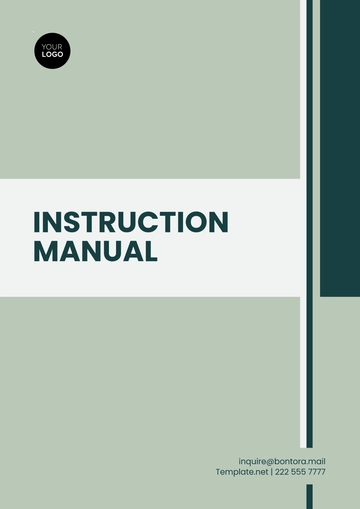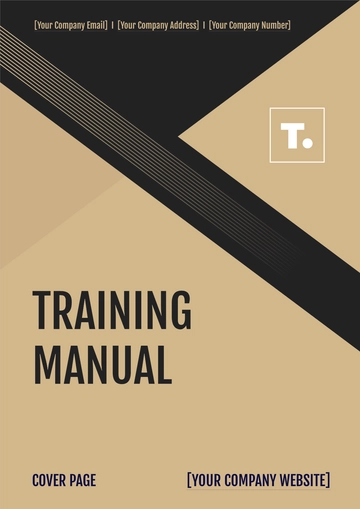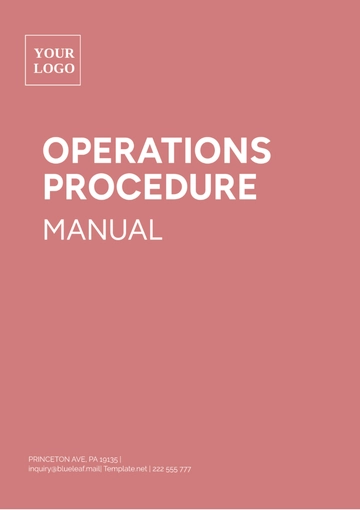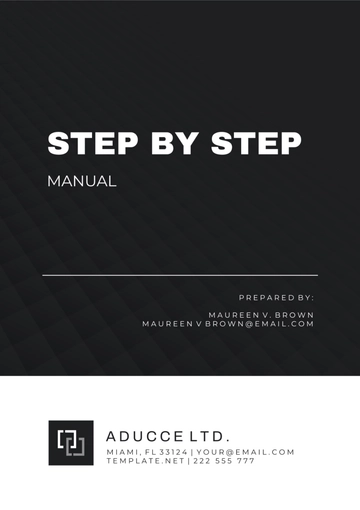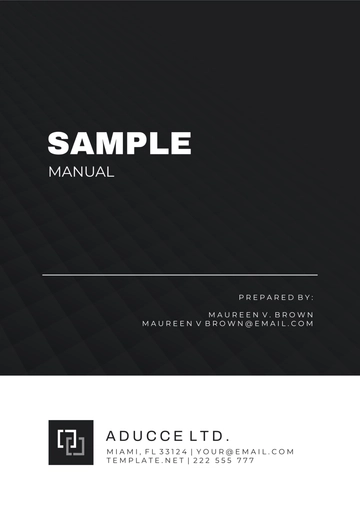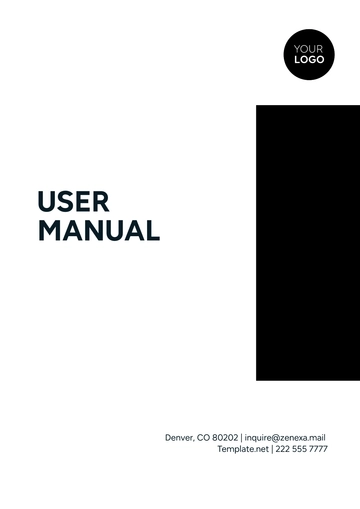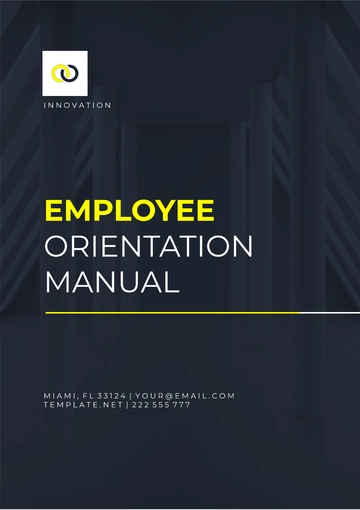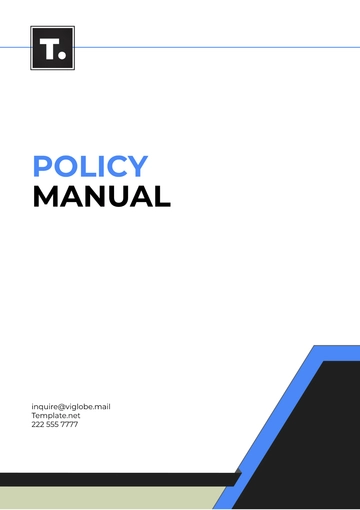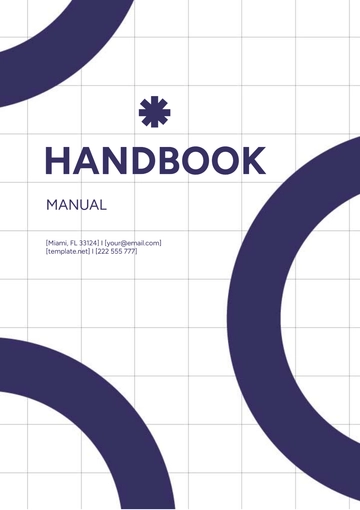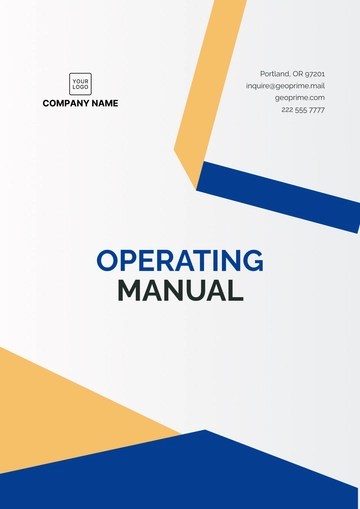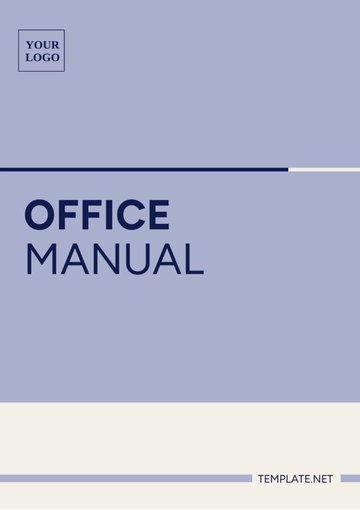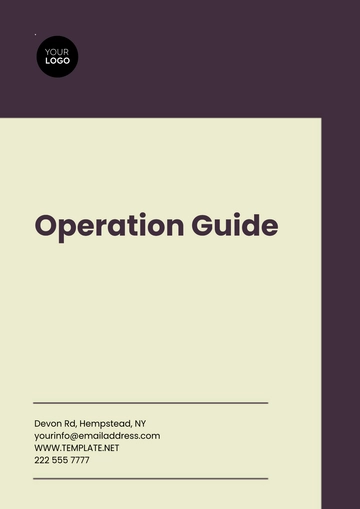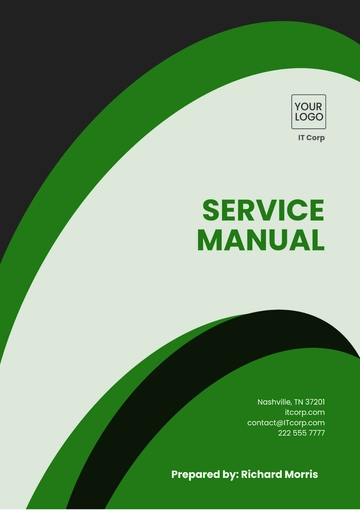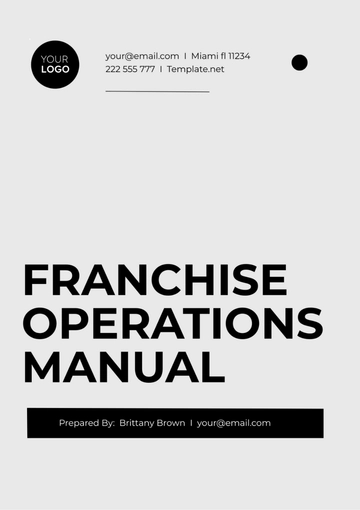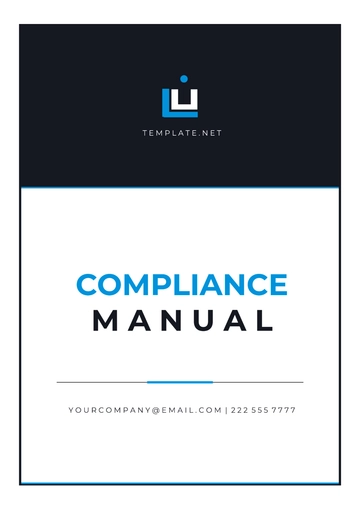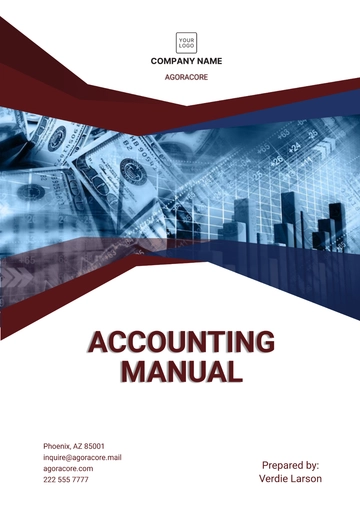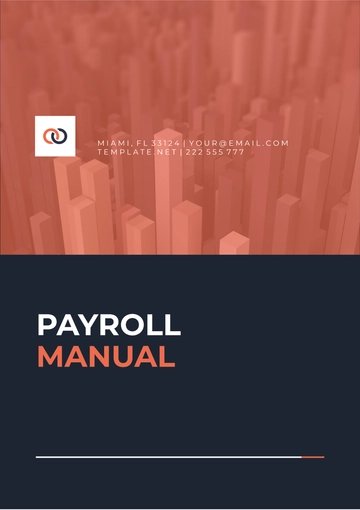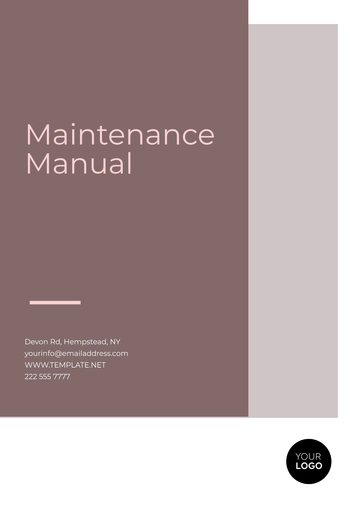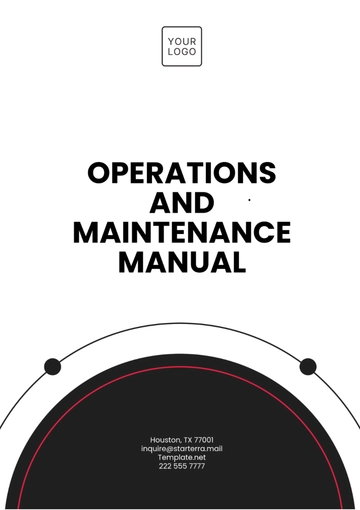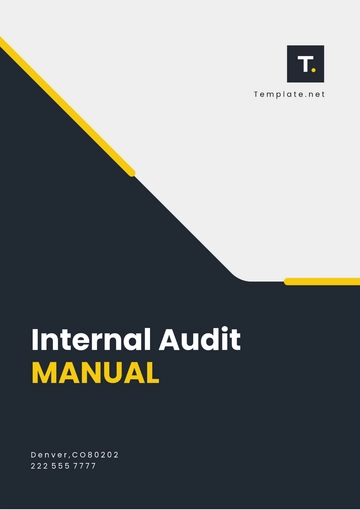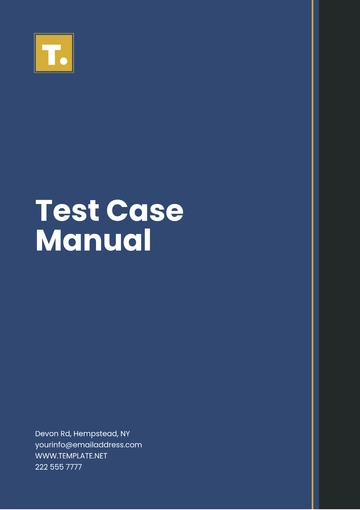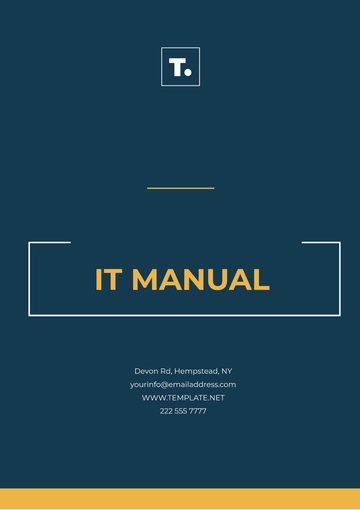Free Financial Training Manual
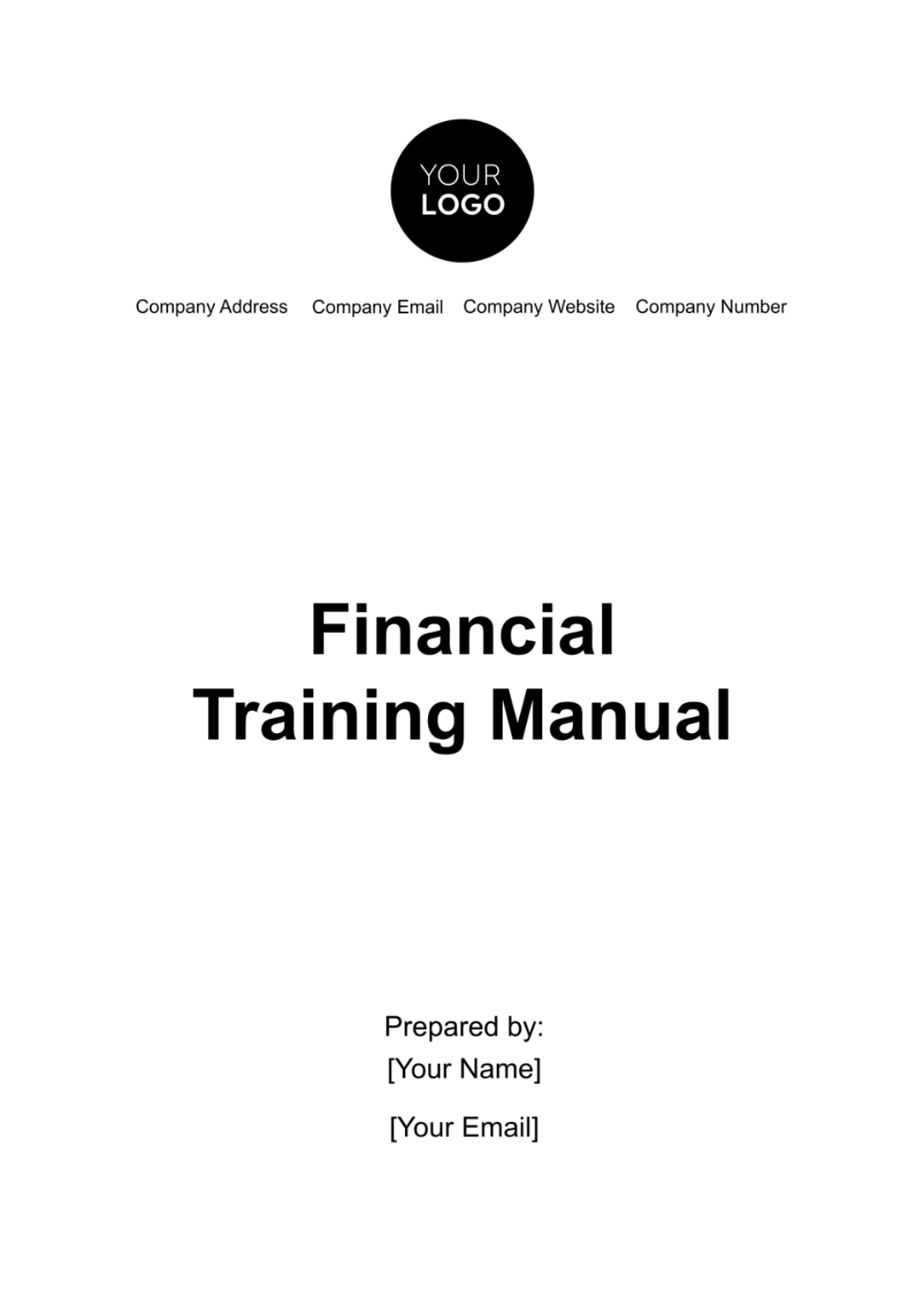
I. Introduction
A. Purpose
The primary aim of this manual is to enhance the efficiency, accuracy, and consistency of financial processes across departments. By providing a standardized guide, we intend to equip employees with the understanding and proficiency needed to contribute effectively to the organization's financial objectives.
B. Scope
This manual covers a broad spectrum of financial topics, including financial policies, procedures, compliance guidelines, and the use of financial software. It serves as a reference for routine financial tasks and more complex financial analyses, ensuring that employees are well-prepared to navigate a diverse range of financial activities.
C. Target Audience
Designed for all employees involved in financial activities, this manual caters to individuals across various departments, from finance and accounting to operations and management.
II. Financial Policies
A. Expense Management Policies
1. Reimbursement Procedures
Employees are required to submit reimbursement requests within [15 days] of incurring business expenses. Each submission must include detailed receipts, a brief justification, and adhere to the process.
2. Travel Expenses
Travel-related expenses necessitate pre-approval, detailed documentation, and prompt reimbursement. Employees should seek approval a minimum of [two weeks] before travel and submit expense reports within [one week] of their return.
B. Budgeting Policies
1. Budget Development
The development of departmental budgets involves a collaborative process, requiring detailed justifications for budgetary requests.
2. Budget Monitoring and Adjustments
Ongoing budget monitoring is facilitated through quarterly reviews. Departments have the opportunity to propose adjustments, ensuring our budgets remain flexible and responsive.
C. Compliance Standards
1. Regulatory Compliance
Our organization adheres strictly to legal and regulatory standards governing financial activities, ensuring compliance to maintain organizational integrity.
2. Internal Compliance Checks
Internal compliance checks are conducted regularly to ensure adherence to organizational policies and external regulations, promoting a culture of accountability and responsibility.
III. Code of Conduct
A. Ethical Standards
Upholding the highest ethical standards is fundamental to our financial practices. Employees are expected to conduct themselves with integrity and honesty in all financial matters.
B. Integrity in Financial Transactions
1. Accuracy and Transparency
Every financial transaction must be executed with precision and transparency. Falsification or manipulation of financial data is strictly prohibited, promoting accuracy in our financial records.
2. Confidentiality
Safeguarding the confidentiality of financial information is paramount. Employees are required to handle financial data responsibly, ensuring it remains confidential and protected from unauthorized access.
C. Professionalism in Financial Activities
1. Communication Etiquette
Professional communication in financial roles is imperative. Employees should adhere to professional standards in written and verbal communication, promoting clarity and maintaining a positive organizational image.
2. Conflict of Interest
Employees are expected to identify and manage potential conflicts of interest in financial activities. Transparent disclosure and appropriate resolution mechanisms ensure ethical decision-making.
3.Reporting Violations
Employees can report violations to their immediate supervisor, the HR department, or through an anonymous whistleblower hotline. The organization is committed to protecting whistleblowers from retaliation, and all reports will be thoroughly investigated.
4. Disciplinary Measures
Depending on the severity of the violation, measures may include counseling, additional training, suspension, or, in extreme cases, termination. The severity of the disciplinary action will be determined through a fair and thorough investigation process.
IV. Roles and Responsibilities
A. Clarity in Financial Roles
1. Departmental Responsibilities
Departments are responsible for adhering to budgetary constraints and financial guidelines. In case of any financial discrepancies or challenges, department heads are required to promptly report to the finance department.
2. Cross-Functional Collaboration
Collaboration between departments is essential for holistic financial management. Cross-functional teams contribute to the alignment of financial activities with organizational objectives. Inter-departmental communication is encouraged, and finance liaisons in each department facilitate coordination and information exchange.
B. Accountability for Financial Outcomes
1. Performance Metrics
Key performance indicators are established to measure financial success and identify areas for improvement. Department heads are responsible for regularly reviewing these metrics, identifying trends, and implementing corrective actions as needed.
2. Transparent Reporting
Finance leaders are responsible for preparing accurate and timely financial reports, and department heads are expected to communicate financial performance to their teams and address any queries or concerns.
V. Financial Procedures and Protocols
A. Invoice Processing
1. Submission and Verification
Invoices must be submitted to the responsible finance personnel promptly. The finance team will verify each invoice for accuracy, ensuring it aligns with the provided goods or services and complies with pricing agreements.
2. Approval Workflow
Invoices undergo a systematic approval workflow, involving relevant departments. Approval authorities are designated, and deviations from the standard workflow require documented justifications.
B. Purchase Order Management
1. Creation and Authorization
Departments initiating purchases must create purchase orders (POs) through the designated system. POs require proper authorization before goods or services are procured.
2. Budgetary Compliance
POs must align with the approved budget for the respective department. Finance personnel monitor budget adherence and notify departments of any impending overages.
C. Expense Reconciliation
1. Employee Reimbursements
Employees seeking reimbursement must submit expense reports with receipts. The responsible finance personnel reviews and reconciles these reports, ensuring compliance with reimbursement policies.
2. Credit Card Expenses
Credit card transactions are reconciled regularly. Employees are required to provide detailed justifications for expenses charged to company cards.
D. Vendor Management
1. Onboarding and Evaluation
Vendor onboarding involves a comprehensive evaluation process. The finance department assesses vendor reliability, compliance, and financial stability before formalizing partnerships.
2. Contract Compliance
Contracts with vendors are managed to ensure compliance with agreed-upon terms. The finance department oversees contract execution and assesses performance against contractual obligations.
VI. Financial Reporting and Analysis
A. Timely Reporting
1. Monthly Financial Reports
The finance department prepares and disseminates monthly financial reports to relevant stakeholders by the designated deadline. Reports include income statements, balance sheets, and cash flow statements.
2. Quarterly Performance Reviews
Quarterly performance reviews provide a deeper analysis of financial performance. Variances are explained, and strategic adjustments may be proposed.
B. Budget Variance Analysis
1. Identification of Variances
The finance department conducts regular analyses to identify budget variances. Departments collaborate to understand and address significant variances.
2. Corrective Action Plans
Departments develop corrective action plans for budget variances. The finance department collaborates with departments to implement measures aligned with organizational objectives.
C. Forecasting and Planning
1. Data-Driven Forecasts
The finance department utilizes historical data and market trends for accurate financial forecasting. Forecasts inform budget adjustments and strategic decision-making.
2. Strategic Planning Sessions
Periodic strategic planning sessions involve the finance department and key stakeholders. These sessions align financial goals with organizational strategies, ensuring financial plans support overall objectives.
D. Compliance Reporting
1. Regulatory Compliance
The finance department monitors changes in regulatory requirements. Compliance reports are submitted to relevant authorities, ensuring adherence to financial regulations.
2. Internal Compliance Audits
Internal compliance audits are conducted periodically. The finance department collaborates with internal audit teams to ensure ongoing adherence to established financial policies and procedures.
3. Communication of Results
Results of financial performance metrics are communicated to departments regularly. This transparent communication ensures awareness and alignment with organizational financial goals.
E. Adherence to Financial Standards
1. Regular Audits
Regular internal audits ensure adherence to financial standards. The finance department coordinates with audit teams to address any deviations and enhance financial compliance.
2. Continuous Improvement Initiatives
The finance department initiates continuous improvement projects based on audit findings. These projects aim to streamline financial processes and enhance overall efficiency.
VII. Financial Software Usage
The table below provides an overview of the financial software used within the organization for various financial tasks:
Software Tool | Details | Steps on How to Use |
Accounting Nexus | Manage financial transactions, track expenses, income, and financial health effectively. | 1. Log in to the software. 2. Navigate to the "Transactions" tab. 3. Enter transaction details. |
Training on the usage of specific financial software and tools employed by the organization for tasks like accounting, budgeting, and reporting is crucial. The effective utilization of these designated financial software tools is paramount in streamlining financial processes, enhancing accuracy, and promoting efficiency within the organization. Familiarizing these tools empowers employees to leverage their full capabilities, maximizing the benefits of technological advancements in financial management.
- 100% Customizable, free editor
- Access 1 Million+ Templates, photo’s & graphics
- Download or share as a template
- Click and replace photos, graphics, text, backgrounds
- Resize, crop, AI write & more
- Access advanced editor
Elevate your financial training endeavors with the Financial Training Manual Template from Template.net! This editable and customizable resource simplifies manual creation, ensuring comprehensive financial training materials. Ideal for finance professionals, it enhances financial expertise seamlessly. Save time and resources by acquiring your copy today and empower your team with top-notch financial knowledge!
